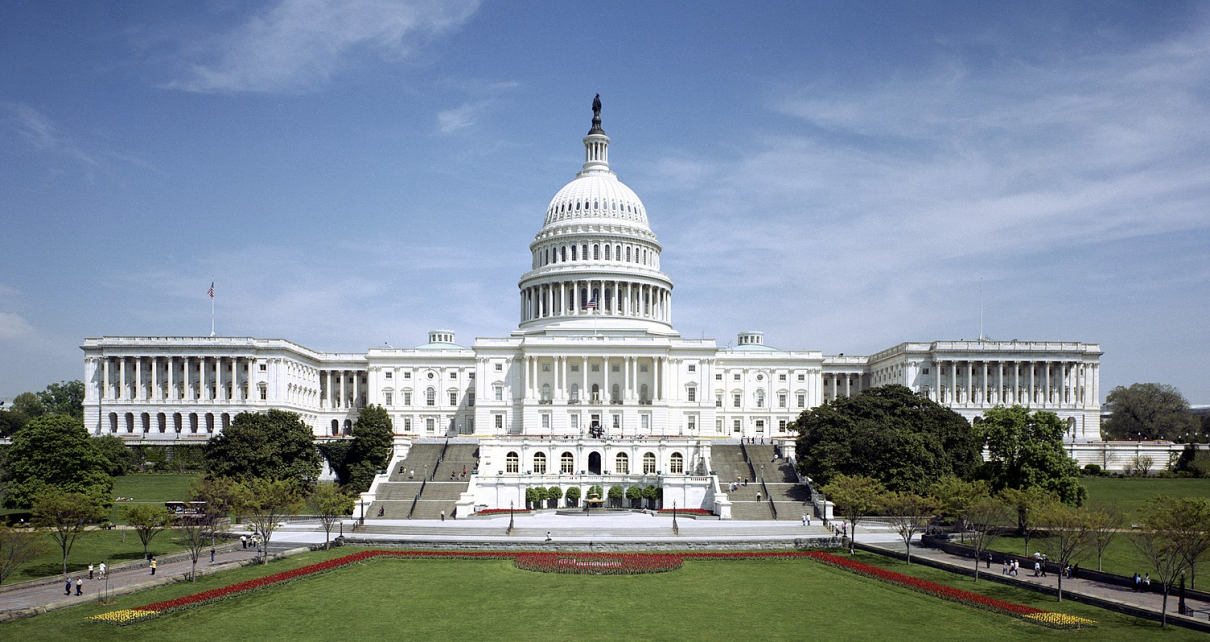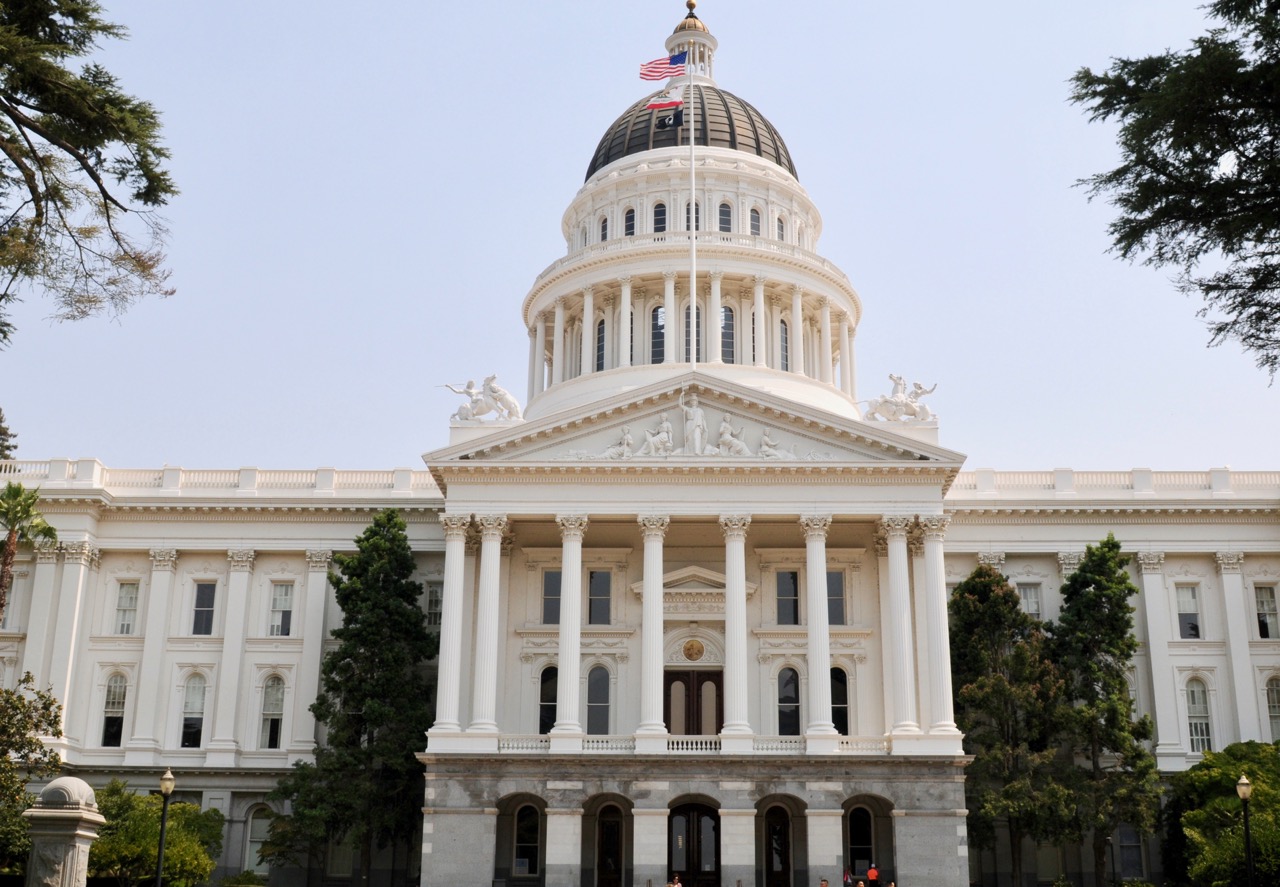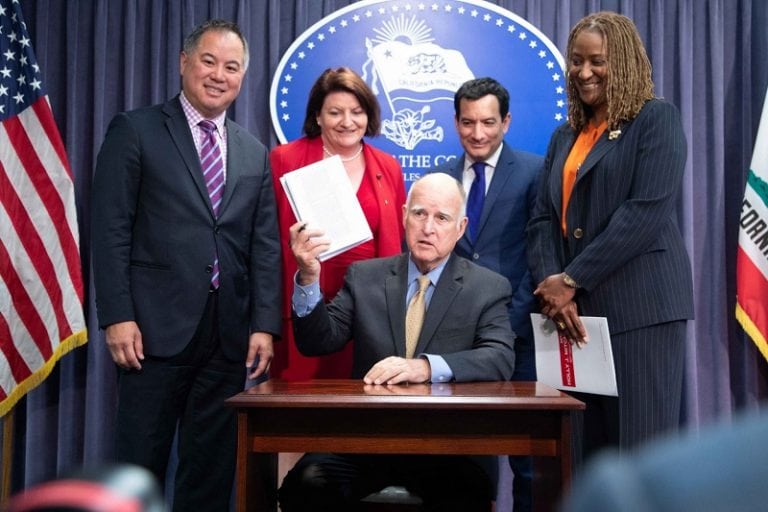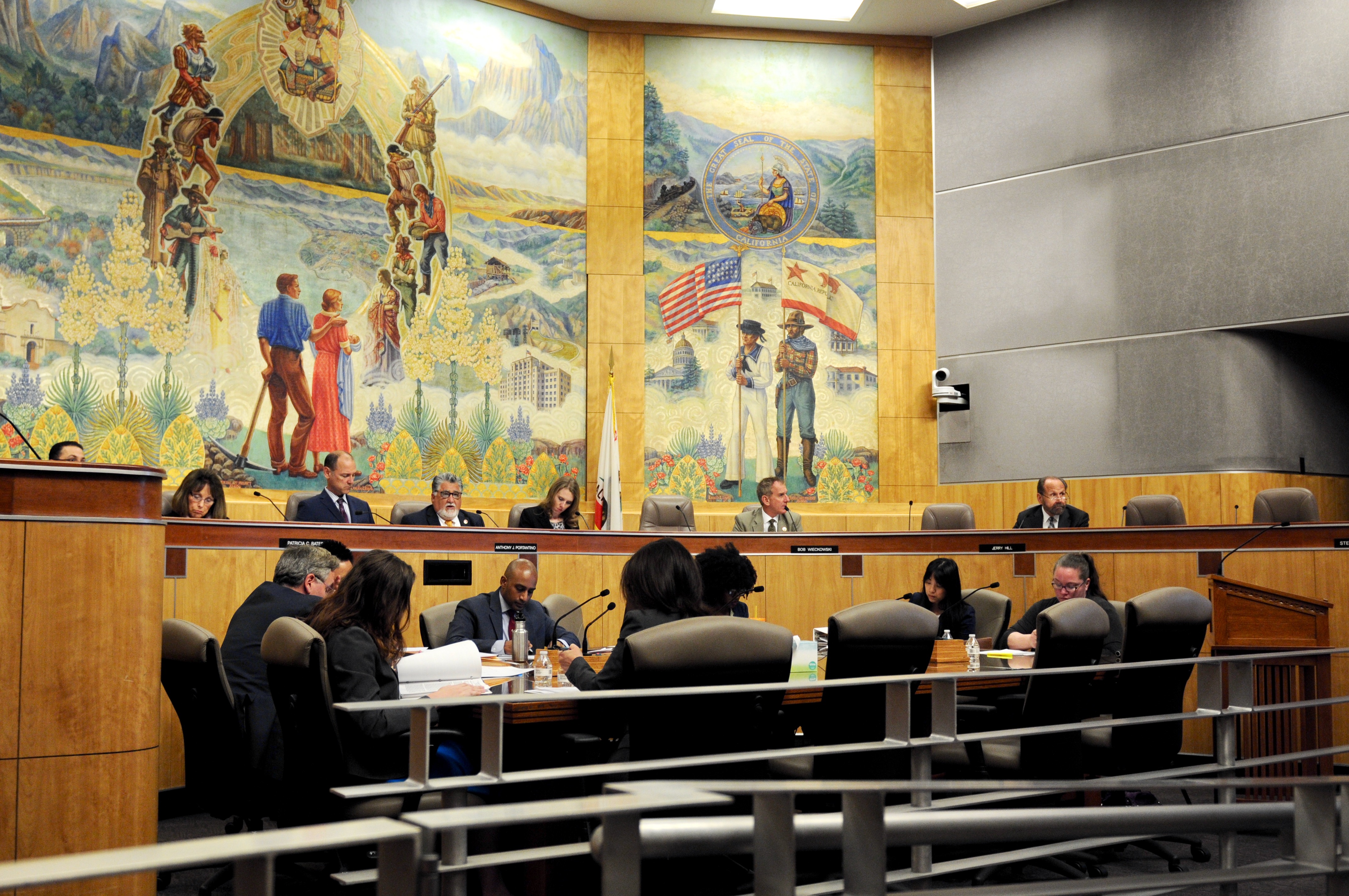
U.S. Capitol. (Photo: Architect of the Capitol)
Grassroots Iranian American Activists Lobbying Congress for New Iran Sanctions Legislation
California is home to the largest population of Iranian Americans in the U.S.
By Karmel Melamed, September 17, 2023 12:37 pm
After nearly a year since on-going protests for freedom erupted in Iran by millions of protestors against the rule of Iran’s Islamic regime, thousands of Iranian Americans in California and across the U.S. have been energized to publicly advocate on behalf of their former countrymen in Iran who are demanding regime change.
Iranian Americans have not only held rallies in various major U.S. cities for many months supporting the people of Iran, but since January, countless grassroots activists from their community have organized an informal advocacy group through social media platforms. Their group has also been lobbying members of Congress to pass new sanctions legislation against the Iranian regime’s leadership.
“Among the Iranian-American community, there is a considerable number of well-educated and successful individuals who genuinely care about Iran and are passionate about restoring its former glory,” said Shabnam Mirbadin, a 45-year-old Iranian American activist living in Emeryville. “Having experienced the privileges of living in one of the best countries in the world, it reinforces our desire to strive for the same freedom and opportunities for the people in Iran.”
California is home to the largest population of Iranian Americans in the U.S. with community leaders estimating their numbers to be roughly 1 million statewide.
Mirbadin is just one nearly 100 Iranian American grassroots volunteer activists of different ages in California and elsewhere in the U.S. calling themselves the “Mahsa Act Army.” Utilizing different social media platforms, they have mobilized countless members of their community to regularly contact members of Congress and asked them to vote in support of House Resolution 589, also known as the “Mahsa Act.” The bill, named after Mahsa Amini, a 22-year-old Iranian woman who was beaten to death by Iran’s morality police in September of last year for not wearing the proper Islamic head covering, imposes specific sanctions against Iran’s Supreme Leader Ali Khamenei and the regime’s other leadership.
After Amini’s death, demonstrations grew exponentially in Iran into a national revolution and subsequent violent crackdown, as security forces non-discriminatingly beat, arrest, and shoot protesters. Videos and images posted on social media platforms since last year show citizens being beaten by regime forces on city streets; other footage from inside Iran shows protesters with shotgun bullet wounds, bleeding from their heads, and young women weeping as they describe being repeatedly raped by prison guards.
According to the U.S.-based “Human Rights Activists News Agency,” regime paramilitary militias and police forces killed more than 500 protesters, including 63 minors, since the demonstrations began last year.
Young Iranian American activists said they were moved to do more for their former countrymen after seeing the brutal violence the Iranian regime’s security apparatus carried out against protestors in Iran.
“Legislative advocacy became a deeply personal passion of mine when I witnessed the Iranian youth, some of whom were my age or even younger, being brutalized by the regime simply for protesting in pursuit of basic human rights,” said Sarah Raviani, a 25-year-old Iranian American activist based in Dallas. “Shifting to solution focused advocacy allowed me to channel the sorrow I experienced for the people of Iran into a positive outlet.”
Raviani is one of a handful of young Iranian Americans who since January have also been traveling to Washington D.C. regularly on their own dime and lobbying members of Congress and the U.S. Senate to support the Mahsa Act. Surprisingly their persistent efforts and those of the Iranian American community’s activists have resulted in bi-partisan support for the Mahsa Act which was passed by the House of Representatives on September 12th.
“I think the Iranian American community’s advocacy for the Mahsa Act demonstrates its power and that it can be a driving force to change U.S. policy on Iran,” said Jason Brodsky, public policy director for “United Against a Nuclear Iran” a non-profit advocacy group based in Washington D.C. “It was able to amass cosponsors from progressives to conservatives, which is not an easy feat. And the community’s advocacy and unity in moving this legislation is one of the most under-covered stories of the year.”
Many Iranian Americans who have long opposed Iran’s current regime, said they were very impressed with the younger activists in their community making a real difference with advocacy on legislation against Iran’s oppressive regime in such a short time period.
“The younger generation never ceases to amaze me –they attend protests, speak out against the mullahs, speak to their representatives and are super active on social media,” said Dr. Bobby Afrooz, an L.A.-based Iranian American dentist and activist. “This just proves how the Islamic Regime has failed in its 44 years of existence to become accepted by the young generation.”
In addition to individual grassroots activists, the “National Union For Democracy in Iran” (NUFDI) a Washington D.C.-based non-partisan and non-profit organization representing Iranian Americans who want a U.S. policy of human rights and democracy in Iran, have also been involved in encouraging U.S. lawmakers to support the Mahsa Act.
Cameron Khansarinia, NUFDI’s Vice President said members of his organization have had more than 100 meetings with Congressional members and their staff to discuss the Mahsa Act and to educate members of Congress on the violence protestors in Iran have faced at the hands of the Islamic regime after demanding basic freedoms.
Khansarnia also praised the grassroots Iranian American activists for their success in getting many California Democratic members of Congress to support the Mahsa Act, including Katie Porter, Eric Swallwell, Mo Khanna and Adam Schiff, that have in the past been resistant to supporting sanctions legislation on the Iranian regime.
“I’ve never seen the Iranian-American community as engaged and as active as it is right now” said Khansarinia. “Our community is just now beginning to understand the power it has and the Mahsa Act has shown why engaging in the political process and legislative advocacy is worth the time and effort because it pays off.”
He said also said individual Iranian American activists from California were key in getting U.S. Senator Alex Padilla to recently co-sponsor the Senate’s version of the Mahsa Act.
Individual younger Iranian American activists said their advocacy for the Mahsa Act during the last nine months has also become a source of moral support for young protestors in Iran in their same age range that they have surprisingly closely bonded with through social media platforms such as Twitter and Instagram.
“Almost all of these younger activists in Iran are facing many challenges and obstacles throughout their day-to-day life such as fearing their walk to school, fearing getting poison gas attacked at school, fearing high-fiving a friend of the opposite gender, dancing in public with a friend or even having your bangs showing,” said Emily Sharif, 20-year-old Iranian American activist based in Nashville. “Yet they are the ones who go out of their way to message me on Twitter and ask me if I’m mentally doing fine– which just shows how incredibly caring this younger generation is in Iran.”
Interestingly, many California grassroots Iranian American activists said they have also found support for their advocacy efforts on behalf of their former countrymen among city-level elected officials, particularly from Sharona Nazarian, an Iranian American city councilmember in Beverly Hills.
“I’m happy to serve as a voice for many in our community and serve as a bridge to amplify their voices,” said Nazarian. “The Iranian community has previously not felt politically motivated and they’ve always been taught to keep their head down and keep a low profile. Recently, they are starting to bear witness to the power of democracy and they realize that their vote matters.”
Iranian Americans activists in California and nationwide said they plan to continue to march and hold public rallies on September 16th to mark the anniversary of Amini’s death and in order to draw attention to human rights abuses of Iran’s Islamic regime that they said have not received enough U.S. news media coverage.
“It’s important that we Iranian Americans continue to be a voice for the voiceless,” said Arezo Rashidian, one of the organizers of the on-going Iranian American rallies in Southern California. “The Islamic Republic is silencing the people of Iran by brutal force and Iranians Americans feel the importance to be that voice.”
Raviani and other grassroots Iranian American activists said even though they expect passage of the Mahsa Act in the U.S. House of Representatives, they will continue to ask members of the U.S. Senate to also support the bill and other Iran sanctions legislation that may be introduced in the future.
“Our community is more committed than ever to see a free, secular, and democratic Iran and the Mahsa Act is just the first step for our community,” said Raviani. “Deep in my heart, I believe that love and light will always conquer evil. The unbreakable unity amongst Iranians will ultimately defeat the Islamic Regime.”




